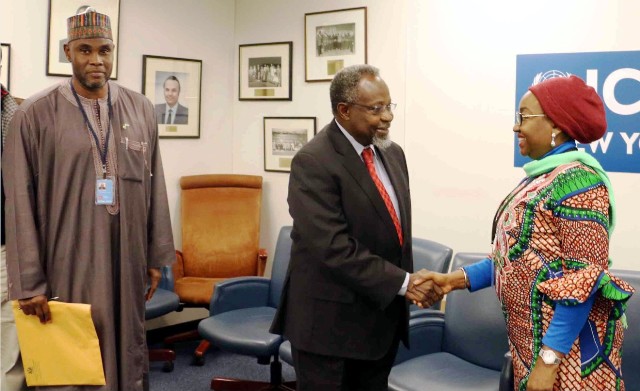Business
NAOC To Build S15bn Refinery In N’Delta – Minister

The Nigerian Agip Oil Company (NAOC) has accepted to build a 150,000 barrels per day refinery in either Port Harcourt or Brass worth S15 billion, the Minister of State, Petroleum, Dr Ibe Kachikwu, said yesterday.
Kachikwu briefed State House Correspondents on the deal after a meeting with acting President Yemi Osinbajo with petroleum ministry, NAOC and NNPC officials at the Presidential Villa.
He said that Agip was also building a power plant and would repair the existing refinery in Port Harcourt to boost local production of petroleum products.
“The Acting President chaired two meetings this morning. The first was with the ministry of Petroleum, NNPC and Agip Oil Company.
“In the first meeting, we dealt largely with issues relating to Agip’s investment on Zabazaba Field and then their cooperation with us in terms of repairs of the Port Harcourt refinery where they are working with Oando and a few other people.
“And thirdly and more importantly, we reviewed, following my meeting with Agip during the OTC (over the counter) last week with their Chief Executive Officer worldwide.
“We reached an agreement that Agip would build a brand new refinery of 150,000 barrels capacity, which will be located either in Port Harcourt (Rivers) or in Brass (Bayelsa).
“And so, today they reconfirmed that and they are preparing an MOU along those lines.
“The effect of that new refinery goes back to our insistence that oil companies who work in this country would need to begin to migrate away from just exporting crude and begin to look at how to refine those crude and help our local capacity to be able to meet our consumption.’’
The minister said that the new refinery, along with the work Agip is to do at the old refinery in Port Harcourt, would increase the country’s momentum in localising the capacity to produce every refined product.
He added that it would enable the country “to meet the timeline for 2019 that we have been targeting conceptually”.
“So, it is very welcome, deliberative, very successful meeting and we are looking forward to work with Agip going forward in working out the modalities and quickening the process to execute this major project.
“I would also be calling on other multinationals who occupy the same space to see what they can do both in the areas of power.’’
Kachikwu also said that Agip was doing a second power plant that should be on stream by 2019 to 2020.
He said the objective was to ensure that the oil majors did not just take the crude and all the investments but that they would also see what they could do in terms of creating other related industrial growth paths.
“Total investment from Agip involved in both the Zabazaba field, the power plant and the new refinery is in excess of $15 billion. That is major push in terms of our search for investment,’’ the minister explained.
He noted that by the investment Agip would not take over the country’s refineries.
“They (Agip) are going to build their own refinery; it is not different from Dangote building a refinery.
“And if our own will pack up because they are doing then we must be doing something wrong.
“So, if they are going to bring best practices to the field we need to pursue those best practices because ultimately we must begin to look at an export model,’’ he added.
Kachikwu said that the administration was looking at how to position refineries in the country to supply the African market.
He explained: “so market protectionism is not going to be the answer. It is getting our own system up in excellent levels of performance to be able to march international standards.’’
Business
Two Federal Agencies Enter Pack On Expansion, Sustainable Electricity In Niger Delta

Business
Why The AI Boom May Extend The Reign Of Natural Gas

Business
Ogun To Join Oil-Producing States ……..As NNPCL Kicks Off Commercial Oil Production At Eba


